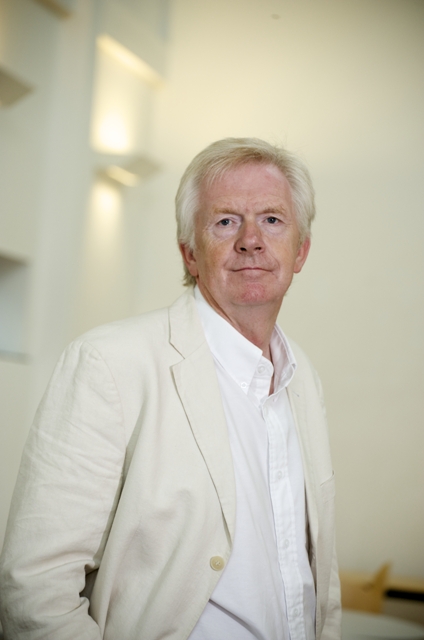£2 billion needed for science to help feed the world

The Royal Society, the UK’s national academy of science, is calling for a £2 billion “Grand Challenge” research programme on global food security.
A report published on 21 October 2009 says that the UK should lead international research efforts if we are to achieve the massive increase in food crop production (at least 50 percent) that will be required by 2050 to meet global food demands without damaging the environment.
Lancaster University’s Professor Bill Davies of the Lancaster Environment Centre was one of the authors of the report. Professor Davies has been working in sustainable agriculture for many years and earlier this month his team’s work addressing the challenges facing food crop production against a background of climate change won Times Higher Research Project of the Year.
He said: “Feeding a world population approaching seven billion against a background of growing concern over our planet's capacity to adapt to a changing climate is a tall order. Climate change predictions show that rising global surface temperatures coupled with significant changes in rain fall intensity are likely to lead to serious droughts and more frequent flooding. This in turn will threaten food production and safe water supplies.
“While many issues affect the availability of food and people’s access to it, now, possibly more than at any time in the past, there is a need for innovation to ensure we can successfully meet this global challenge.”
Predictions now put the world’s population at 9 billion people by 2050. The Royal Society emphasises the urgency of the challenge. Changing consumption patterns, the impacts of climate change and growing scarcity of water and land make the challenge of increasing agricultural yields worldwide even greater. Crop production methods will need to sustain the environment, preserve natural resources and support the livelihoods of farmers and rural populations around the world. The report examines the vital role that biological science, especially publicly-funded science, must play to intensify food crop production in a sustainable way.
Professor Sir David Baulcombe FRS, who chaired the Royal Society’s study, said:
“We need to take action now to stave off food shortages. If we wait even five to ten years, it may be too late. Biological science has progressed in leaps and bounds in the last decade and UK scientists have been at the head of the pack when it comes to topics related to food crops. In the UK we have the potential to come up with viable scientific solutions for feeding a growing population and we have a responsibility to realise this potential. There’s a very clear need for policy action and publicly-funded science to make sure this happens.”
The Royal Society says that implementing a research programme that directs at least £200 million in funding annually for the next ten years to science that improves crops and sustainable crop management must be a Government priority. This would see the addition of at least £50 million to what is already spent on science for food-crops each year. The “Grand Challenge” programme should support areas of research that have been neglected in recent years including exploring new methods of crop management to increase yields and minimise environmental impact. It should also support the development of improved crop varieties by both conventional breeding and genetic modification.
The programme would be developed by Research Councils UK (RCUK) and bring together all research councils, the Technology Strategy Board, the Department for International Development (DFID) and the Department for Environment Food and Rural Affairs (DEFRA).
The report describes recent advances in research methods including the ability to determine the complete genome sequence of crop plants. It also assesses a wide range of science-based technologies and developments in biological science that are seen to have potential benefits for increasing crop yields. It also lays out the consequences and complications of innovation in food crops, taking into account environmental, social and economic perspectives. The range of possible solutions will be likely to make a difference across different timescales.
Professor Baulcombe added:
“There is no panacea for ensuring global food security. Science-based approaches introduced alongside social science and economic innovations are essential if we’re to have a decent chance of feeding the world’s population in 40 years time. Technologies that work on a farm in the UK may have little impact for harvests in Africa. Research is going to need to take into account a diverse range of crops, localities, cultures and numerous other circumstances. “
The Royal Society highlights the need to maintain the UK’s capacity to innovate. According to the report many Universities have closed down or reduced their teaching and research in agriculture and crop science causing a shortage of expertise in important topics. The report calls for Universities to work with funding bodies to the reverse the decline in relevant subjects and recommends that they look globally to address the skills gap, offering targeted subsidies to scientists in developing countries to visit the UK and work with UK researchers.